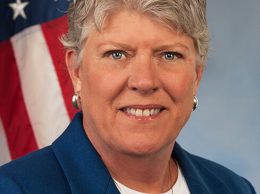
Henry Dubroff
The intersection between business and politics continues to be one of the more fascinating locations on the planet.
And so it is in the Tri-Counties, where business, jobs and the economy are going to play a role in three political races worth watching this year.
The first is in California’s 26th Congressional District in Ventura County, where incumbent Julia Brownley, a Democrat, will face off against Republican challenger Jeff Gorell, currently Assemblymember for the 44th District.
The second is the race between Democrat Jacqui Irwin of Thousand Oaks and Sylvia Muñoz Schnopp, a Port Hueneme Republican, to succeed the termed-out Gorell in the 44th District. Both serve on the city councils of their respective cities.
Finally, there is a Board of Supervisors race taking place in Santa Barbara County’s 2nd District, with incumbent Janet Wolf being challenged by Goleta Mayor Roger Aceves.
The first point to note about these three races is that just one of the six candidates, Gorell, is a white male. This is a nod to the changing demographics of our region. It was not so very long ago that Tony Strickland and Elton Gallegly were a lock to hold the respective Assembly and House seats that are now hotly contested.
The second point is that mind-boggling sums of money are likely to be spent in these hotly-contested races. Herb Gooch, the region’s senior political analyst and professor of politics at California Lutheran University, pegs the estimated price tag of the Brownley-Gorell race at $13 million. The 44th Assembly and 2nd District Supervisor races will also cost a bundle.
Third, business and social issues will vie for headlines. During her two years in the House, Brownley has cultivated contacts in the small-business sector and subtly moved to the center on many economic issues.
Gorell also has strong business credentials, including a bipartisan, statewide business-retention effort launched with Lt. Gov. Gavin Newsom, a Democrat.
Gooch rates the Brownley-Gorell race a toss-up and says it will come down to who does a better job of framing the issues and raising money. If social issues prevail, Brownley will have the advantage, but if jobs and the economy are the issue, the race could be extremely close, he said.
Irwin and Muñoz Schnopp are both pro-business, pro-jobs and pro-entrepreneurship candidates — it will be hard to differentiate their positions. For the two of them, the challenge will be communicating those positions in unfamiliar turf — Thousand Oaks for Muñoz Schnopp and neighborhoods in Port Hueneme and parts of Oxnard for Irwin.
Wolf has had a solid green jobs agenda and the economy in her South Coast district — which spans from the west side of Santa Barbara to Goleta (but not Isla Vista) — is humming. However, Aceves, retired after a distinguished career in law enforcement, can point to strong economic development credentials as a Goleta City Council member and that city’s mayor.
Arguably, Goleta did a better job of navigating through the recession than Santa Barbara County, although the county has improved during the past year. Wolf can count Santa Barbara Mayor Helene Schneider and Supervisor Salud Carbajal among her supporters. Aceves will have to rally his base from Goleta and its Chamber of Commerce.
In the 26th District Congressional race, outside money will be a huge factor, with Gorell relying on Majority Whip Kevin McCarthy, a Bakersfield Republican, to help raise millions. Brownley will have support from powerful California Democrats, including former House Speaker Nancy Pelosi.
Locally, former District Attorney Mike Bradbury will rally a large business constituency to come out for Gorell. But Hank Lacayo, an influential Democrat from Thousand Oaks, will put his coalition of labor, seniors and Latino voters to work for Brownley and Irwin.
Gooch and others would argue that unlike its recent past history as a solidly red or blue series of political fiefdoms, the Tri-Counties is a swing region where contested races should be the norm. The return of the region as an area for toss-up elections is clearly the result of reforms such as redistricting and the open primary system. Now the question is whether the candidates can position themselves to win as a torrent of cash flows in from both supporters and opponents trying to frame key issues.
• Contact Editor Henry Dubroff at hdubroff@pacbiztimes.com.






 Print
Print Email
Email
















